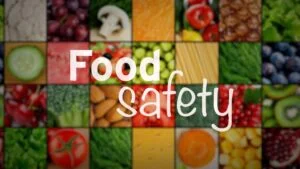
You’ve likely heard of ISO 22000 before, especially if you’re working in or managing a beverage or bottling company. But how much do you really know about it? Is it just another certification you need to add to the pile, or is there something deeper at play here that can genuinely benefit your business?
In a world where consumer safety, trust, and product quality matter more than ever, ISO 22000 certification isn’t just a formality. It’s a vital tool in elevating your brand, ensuring top-notch safety standards, and boosting your credibility in a competitive market. Let’s walk through the ins and outs of ISO 22000, why it matters, and how it can enhance your beverage business.
What is ISO 22000?
Before we get into the nitty-gritty of how to get ISO 22000 certified, let’s break it down simply. ISO 22000 is an international standard that focuses on food safety management. Yes, it’s primarily for the food industry, but let’s face it—beverages and bottled products have much in common with food when it comes to safety, hygiene, and consumer health.
The key aim of ISO 22000 is to ensure that companies effectively manage food safety risks across the supply chain, from the raw materials to the final product that hits the shelves. The certification outlines how to establish, implement, operate, monitor, and continually improve a Food Safety Management System (FSMS).
So, when you get certified, it’s not just about ticking boxes; it’s about creating a culture of safety within your organization. A culture where everyone from top management to frontline workers understands the importance of food safety and is actively contributing to it. It’s like building a robust, safety-first mentality across the entire company.
Why Should Beverage & Bottling Companies Care About ISO 22000?
Here’s the thing: consumers are becoming increasingly aware of what goes into their beverages. They want to know that their favourite bottled drinks are made in a clean, safe, and reliable environment. So, by earning the ISO 22000 certification, you’re not just complying with international standards; you’re showing your customers that you care about their health and well-being.
- Boost Consumer Trust and Confidence
Trust is the cornerstone of any consumer relationship. If customers trust that your company adheres to stringent safety standards, they’re more likely to buy your products. ISO 22000 signals that your business is committed to producing safe, high-quality beverages. For bottling companies especially, where product safety is paramount, this could mean the difference between repeat business and lost sales.
- Improve Operational Efficiency
This isn’t just about compliance; ISO 22000 can actually improve how your company operates. By implementing a solid food safety management system, you’ll have streamlined processes in place for monitoring risks, tracking safety practices, and managing quality control. Over time, this leads to less waste, fewer product recalls, and a smoother overall operation. It’s like setting up a well-oiled machine where everyone knows their role and responsibilities.
- Reduce Risk of Food Safety Issues
Accidents happen, but when you have a solid safety system in place, you’ll catch potential issues before they become disasters. ISO 22000 provides a structured approach to identifying and managing risks, ensuring that your business can prevent foodborne illnesses, contamination, or other safety issues from arising. It’s like having a safety net that catches you when things go wrong—or better yet, preventing problems before they occur.
- Access New Markets and Partnerships
ISO 22000 isn’t just a nice-to-have; it can open doors. Many international buyers and distributors require this certification as a baseline for doing business. By having ISO 22000, your company shows that it meets internationally recognized standards, which makes you more attractive to potential partners and customers worldwide. So, if you’re aiming for global expansion, ISO 22000 certification is a powerful tool to help you get there.
- Stay Ahead of Regulations and Trends
Food safety regulations are constantly evolving, and what was acceptable a few years ago may not meet today’s standards. By staying ISO 22000 certified, you can ensure that your business remains in compliance with the latest global food safety regulations. This helps you avoid fines, penalties, and the headache of scrambling to adjust your practices when new regulations are introduced.
How ISO 22000 Can Be a Game-Changer for Your Beverage Operations
Now that we’ve covered why ISO 22000 is so important, let’s explore how it specifically impacts beverage and bottling companies. After all, your operations are unique—different from those in other parts of the food industry, and ISO 22000 must be applied accordingly.
- Supply Chain Management
As a bottling company, you rely on numerous suppliers for raw materials like water, flavorings, sugar, preservatives, and packaging. With ISO 22000, you gain better control over the entire supply chain, ensuring that your suppliers meet the same high standards for food safety that you do. Think of it as a network of trust—each link in the chain is held accountable to the same rigorous standards, which leads to better quality products all around.
- Hazard Analysis and Critical Control Points (HACCP)
ISO 22000 emphasizes the importance of hazard analysis, which is critical for identifying and preventing potential safety issues at every stage of production. By implementing a Hazard Analysis and Critical Control Points (HACCP) plan, you’ll pinpoint potential hazards in the bottling process—whether it’s contamination during filling, storage conditions, or the quality of your packaging materials—and take corrective actions. This systematic approach helps minimize the risk of contamination or product defects, which is crucial for beverages, especially those that are consumed quickly and without extensive cooking or preparation.
- Employee Training and Engagement
A key component of ISO 22000 is making sure your team understands and upholds food safety principles. The certification process includes employee training, where workers at all levels are educated about food safety risks, proper handling procedures, and how to identify hazards. This ensures that everyone is on the same page and working toward a common goal: producing safe beverages. Plus, when employees feel like they’re part of a bigger mission, their engagement and commitment to quality improve.
- Continuous Improvement Culture
ISO 22000 isn’t a one-time fix—it’s an ongoing journey. Once you’ve achieved certification, the process of auditing, monitoring, and reviewing continues. There’s always room for improvement, and the certification encourages a mindset of continuous progress. Whether it’s refining your risk management strategies, updating training protocols, or tweaking your production process, ISO 22000 ensures that your company is always striving to do better. This constant focus on improvement fosters innovation and keeps your beverage products fresh, both in quality and in market appeal.
The Road to ISO 22000 Certification: What’s Involved?
So, how do you actually get ISO 22000 certified? It’s not a walk in the park, but don’t worry—we’ll break it down for you step-by-step.
- Understand the Requirements
Before you start, it’s essential to understand what ISO 22000 requires. Familiarize yourself with the standard, including its clauses, food safety management requirements, and how they apply to your specific business. This will give you a clear understanding of what you need to do to align your company with the standard.
- Conduct a Gap Analysis
Where do you currently stand in terms of food safety practices? Perform an internal audit or gap analysis to determine what’s working well and what needs improvement. This will give you a baseline to work from and help prioritize areas for improvement.
- Implement Necessary Changes
Based on your gap analysis, you’ll need to make adjustments to your current practices. This could involve revising procedures, enhancing training programs, improving communication channels, or even upgrading equipment. The goal is to build an FSMS that meets ISO 22000 requirements and aligns with your company’s specific needs.
- Internal Audits and Documentation
ISO 22000 requires detailed documentation to prove that your systems and processes are running effectively. You’ll need to keep thorough records of your hazard analysis, risk assessments, corrective actions, and training activities. Regular internal audits help ensure that everything is running smoothly and that you’re on track to meet certification.
The Final Word: Is ISO 22000 Worth It for Beverage & Bottling Companies?
In a nutshell, ISO 22000 certification is more than just a piece of paper—it’s a commitment to excellence, quality, and safety. It builds trust with your consumers, enhances your operations, reduces risk, and opens up new business opportunities. For beverage and bottling companies, where product safety is critical, ISO 22000 can be a game-changer.
So, are you ready to take the plunge and elevate your business? It might take time, effort, and resources to get there, but the rewards are well worth it. Your customers will notice, your bottom line will benefit, and your company will stand out as a leader in food safety and quality.
Take the first step, and soon, your business could be certified, trusted, and thriving in the ever-competitive beverage market.





